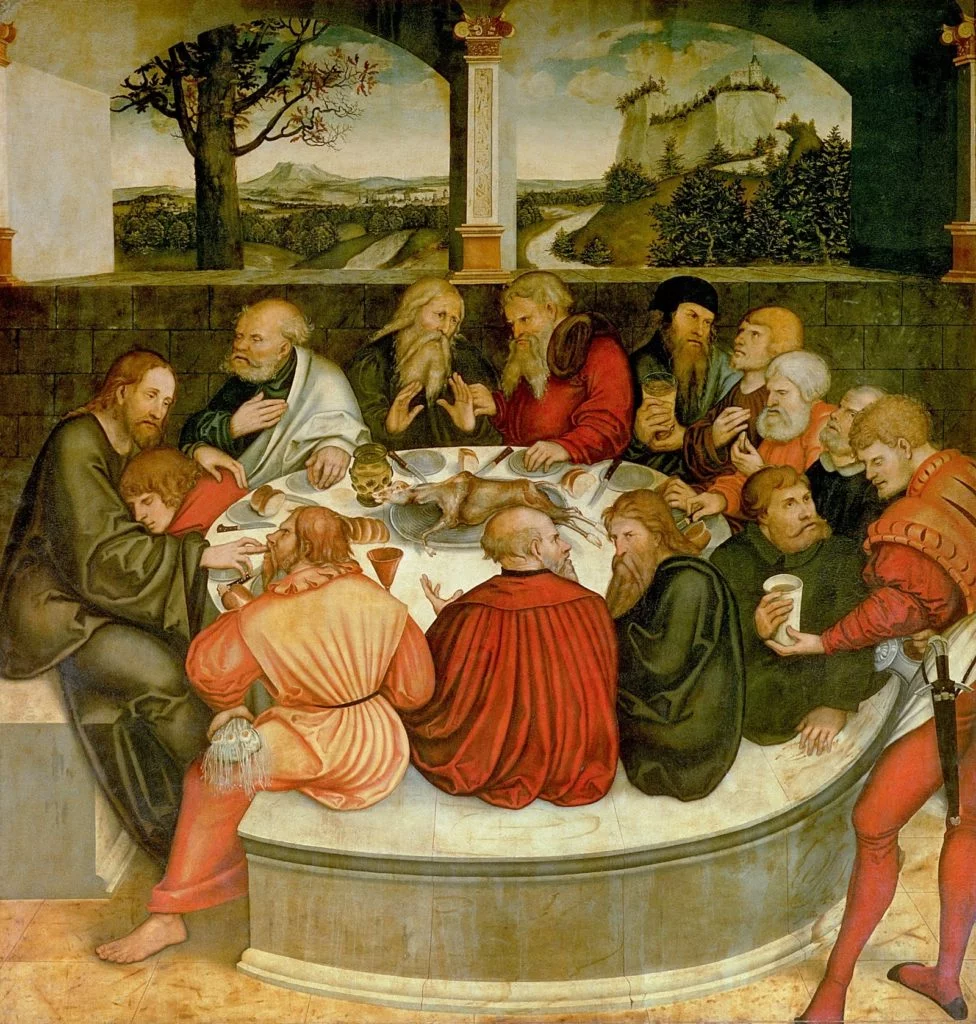Mark’s Passion Narrative (6)
“This is my blood of the covenant, which is poured out for many” (Mark 14:24).
This covenant is the new covenant in Jesus’ blood, although Mark does not designate it as such. Luke 22:20 makes explicit that this is the new covenant. But what covenant could it be if it is a covenant in his blood? This is neither the Abrahamic nor the Mosaic covenant. Mark, however, does provide further clues. Jesus’ entry into Jerusalem just days earlier is an echo of Zechariah’s prophecy concerning Israel’s coming king:
Rejoice greatly O daughter of Zion, shout aloud O daughter of Jerusalem! Behold you king is coming to you, righteous is he, and having salvation, humble and mounted on a donkey, on a colt, the foal of a donkey (Zechariah 9:9; cf. Mark 11:1-10 and Matthew 21:1-5).
Zechariah continues in verse eleven:
As for you also, because of the blood of My covenant with you, I have set your prisoners free from the waterless pit.
The prophetic expectation of a new covenant will be realised in Jesus’ death ‘for the many’—that is, for all, gentile as well as Jew. (Cf. Jeremiah 31:31-34; Ezekiel 11:14-21; 36:25-27) Jesus’ death is a divine promise and pledge—for the many. His death is a ransom—for many (Mark 10:45). As the Passover Lamb he is deliverance and redemption, God taking his people as his own, giving them life and liberty. This covenant is in his blood: he makes the promise and the disciples drink “all of it.” They are the recipients. They are granted a participation in his death and in his victory over death. They are granted a participation in the covenant itself.
And he took the cup and … gave it to them, and they all drank of it (Mark 14:23).
Does the fact that the disciples all drink from the cup equate to an answering pledge on their part? Is their drinking an acceptance of the covenant with respect not only to the divine promise but also its claim? Are they also saying, “All that the Lord has spoken, we will do” (cf. Exodus 24: 3, 7-8)? The blood of the covenant is a covenant of grace. But this does not mean that the recipients of the covenant are not called to faithfulness and obedience.
The metaphor of the cup appears several times in the gospel. In Mark 10:38-39 Jesus says,
Are you able to drink of the cup that I drink? … The cup that I drink you will drink.
And a little later, in Gethsemane, Jesus uses the term again in his prayer:
Remove this cup from me. Yet not what I will but what you will (Mark 14:36).
To participate in the cup, to receive it from Jesus and to drink from it is to receive his covenant promise. It is also to be called into participation with him in his mission—and in the manner of his mission: a life of self-giving for the welfare of others. The bread and the cup unite the participant to Jesus himself such that they are now participants in his promise and his destiny, his life and his mission. The signs and the sayings belong together. When we eat the bread, Jesus says, “This is my body,” and when we drink the wine, “This is my blood of the covenant.”
Truly I say to you, I will not drink again of the fruit of the vine until that day when I drink it new in the kingdom of God (Mark 14:25).
Jesus’ blood will be poured out, yet he will live and drink again in the kingdom of God. This is a defiant faith in the face of death. He will take the cup he is given, and drain it to its dregs. But the cup of death will become, in the kingdom of God, the cup of victory and the wine of everlasting life.
